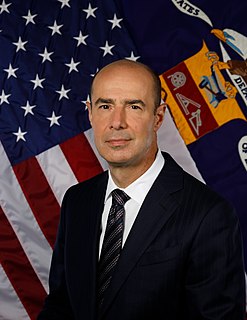A Quote by Mike Braun
As a small-business owner who kept costs low and health care premiums flat for 10 years in my company, I know firsthand that transparency is the trick to reducing the skyrocketing health care costs that are burdening patients, employers, and our state, local, and federal governments.
Related Quotes
And so our goal on health care is, if we can get, instead of health care costs going up 6 percent a year, it's going up at the level of inflation, maybe just slightly above inflation, we've made huge progress. And by the way, that is the single most important thing we could do in terms of reducing our deficit. That's why we did it.

































